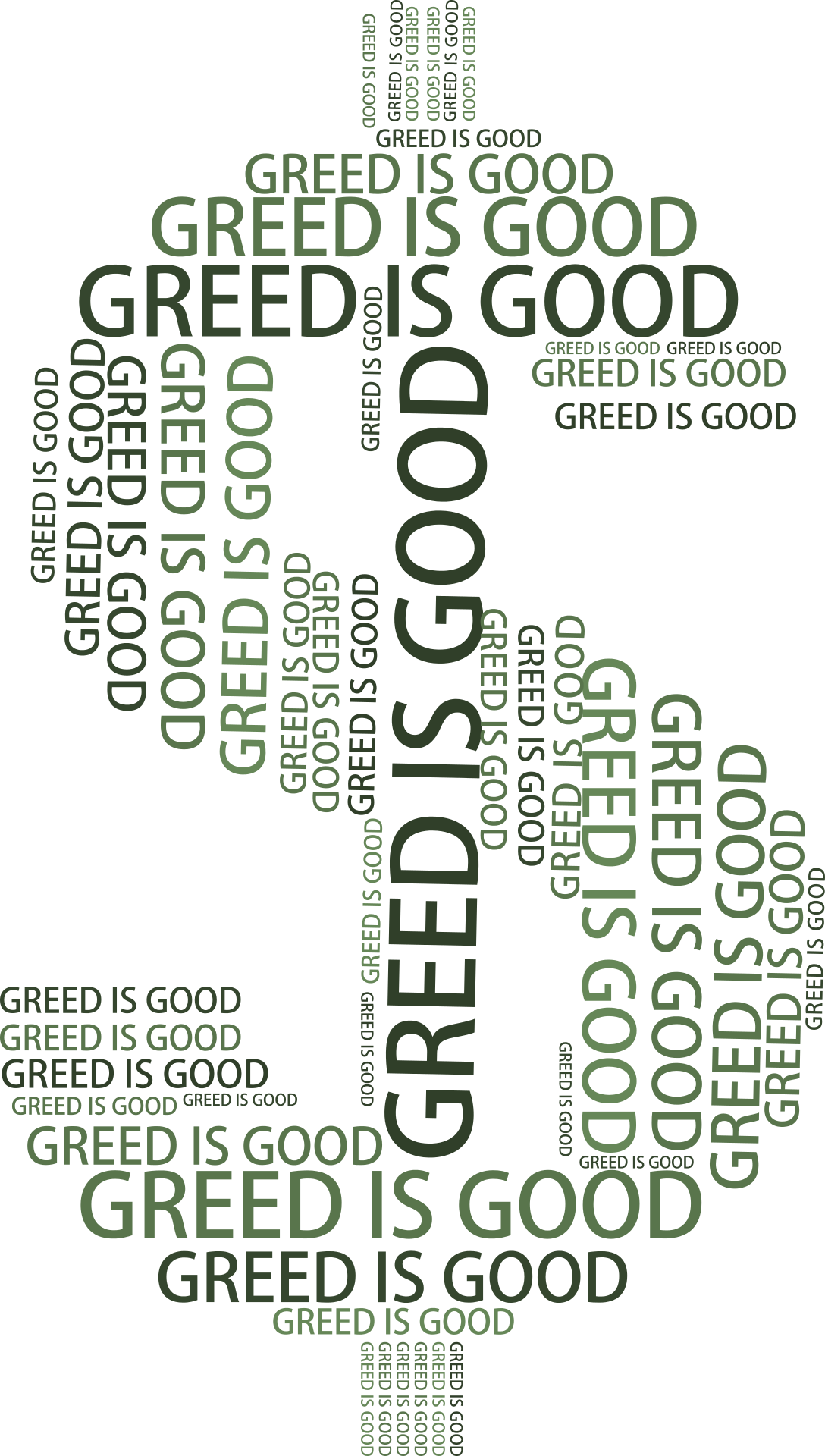
“Greed IS good.”
You might remember that quote. It wasn’t uttered by Rupert Murdoch, Elon Musk, or Mark Zuckerberg. In fact, it was Gordo Gekko, the fictional (anti) hero of the 1987 film, “Wall Street,” directed by Oliver Stone. Played perfectly by Michael Douglas (channeling his inner Pat Riley), Gekko clearly spoke for many industrialists and CEOs when he uttered that iconic quote in a room full of employees who worked for a company he was about to take over. (By the way, Douglas took the “Best Actor” Oscar that year for his brilliant portrayal of Gekko.)
And here we are 36 years later and little has changed. Consumers complain about inflation and price gouging especially during tough times. And they turn right around and pay those outrageous prices anyway. After all, we can’t live without….
…oil. Or in its refined form, gasoline. Last summer we grudgingly paid $5 or more for a gallon of gas. And we continued to take to the highways at a near record pace. AAA reports an additional two million drivers made road trips during the December holidays over the previous year.
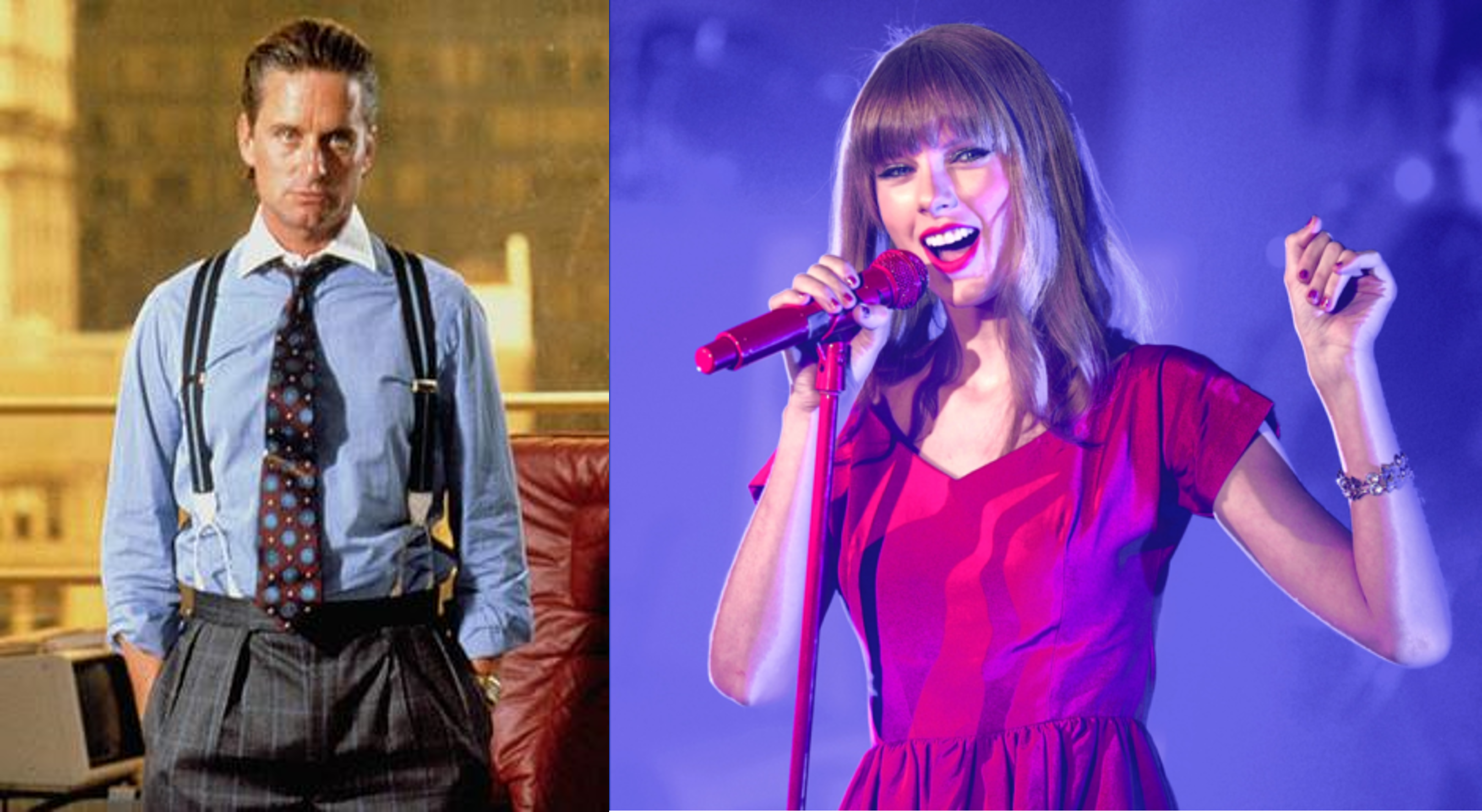
And in 2022, the five biggest oil companies in our part of the world raked in nearly $200 billion in profits – a truly unbelievable performance for an industry already known for its ability to accrue massive windfalls of cash during tough times.
In the world of radio and music, we have an equivalent to those oil companies – concert tickets. Specifically, we’re talking about Live Nation (the promoter) and TickerMaster (the ticket seller), now merged in a single entity that controls 70% of the market. I blogged about Live Nation CEO Phil Rapino during the Taylor Swift debacle last November.
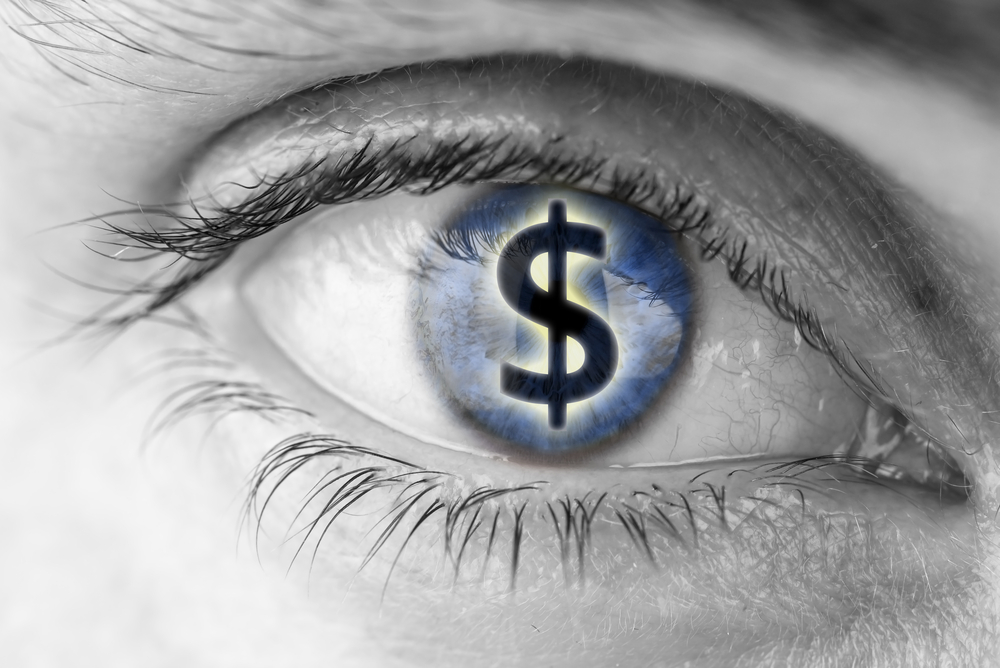 Rapino has had the last laugh. In fact, a barrel of them. Q4 revenues for the concert conglomerate increased nearly 60%, raking just about $4.3 billion.
Rapino has had the last laugh. In fact, a barrel of them. Q4 revenues for the concert conglomerate increased nearly 60%, raking just about $4.3 billion.
He pointed out how “concerts are still an incredibly cheap overall experience,” blaming the bad press on scalpers who “have done a great job hijacking the narrative…”
Gordon Gekko would be proud.
But the fact is, like the price of gas, most of us will pay pretty much anything to experience a favorite artist on stage (even if we’re watching the Jumbotrons half the time).
Hypebot’s Bruce Houghton recently revealed an amazing live entertainment fact: 87% of music fans report they’ll be attending the same or even more shows this year. Half say they’ll actually be in arenas, auditoriums, and concert halls for even more live shows in 2023.
The data comes from a recently conducted Bandsintown fan survey among 2,200 respondents. Despite an iffy economy, the show will indeed go on this year especially for those who always attended concerts.
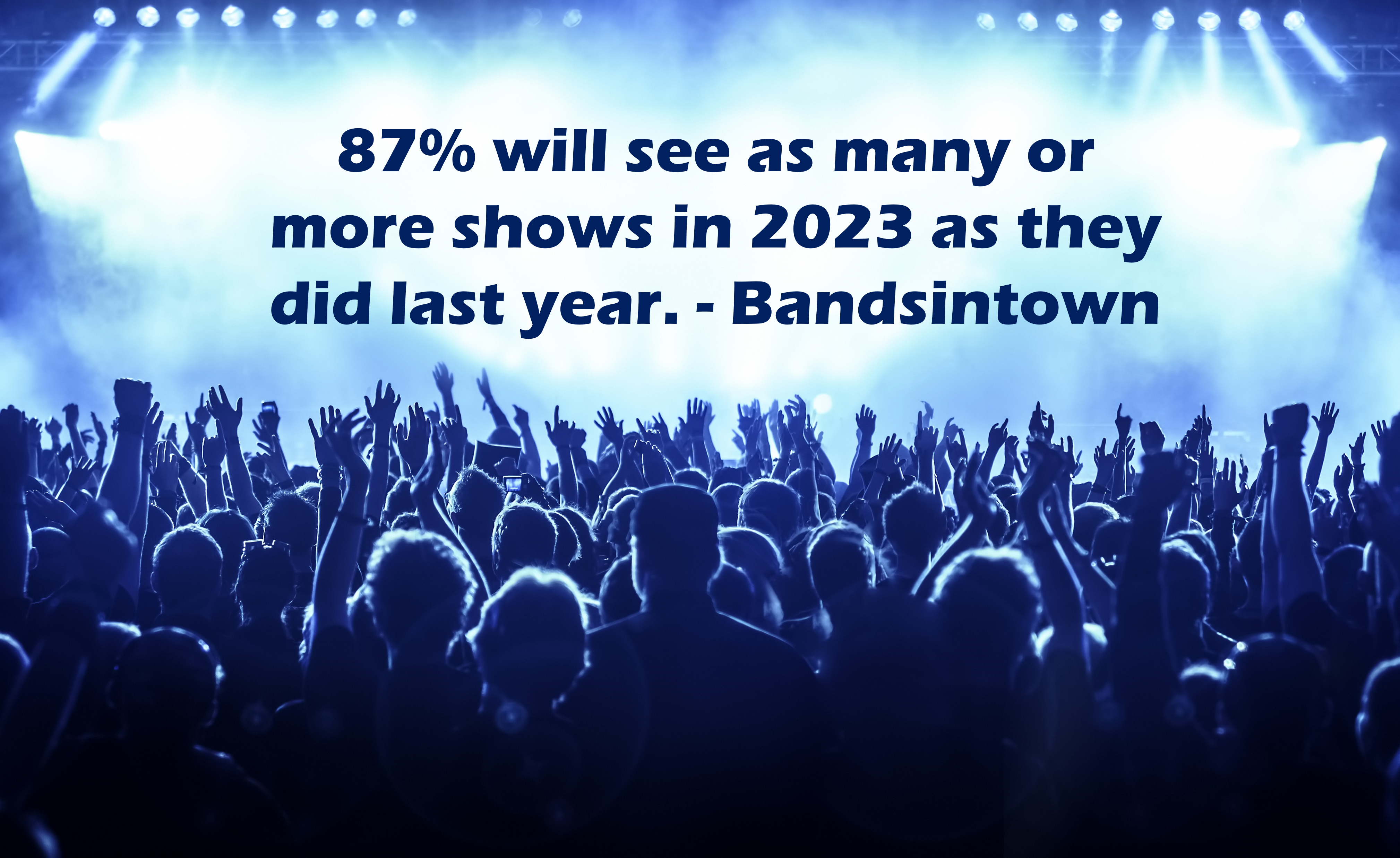
In fact, the pandemic may have ginned up enthusiasm for shows missed during 2020-21. And now that we’re at the three-year precipice of the COVID breakout, there appears to be a strong sense of FOMO among the masses.
No one wants to miss a show – especially from a favorite artist or band that has been off the touring circuit these past few years. All the pent up energy to attend communal shows with like-minded fans who share your taste and know all the lyrics to every song.
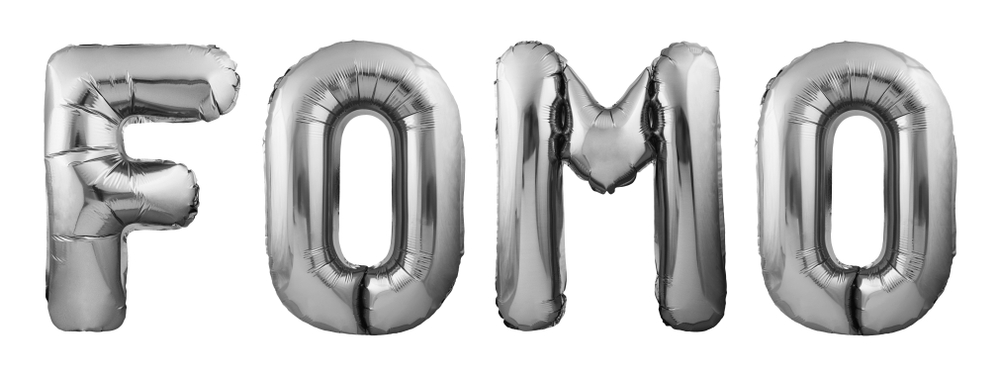 For those fans, in particular, the fear of missing out is palpable. Their fan-aticism has only intensified since the pandemic.
For those fans, in particular, the fear of missing out is palpable. Their fan-aticism has only intensified since the pandemic.
Sounds like Bruce Springsteen and the E Street Band to me. If you’ll remember, the Boss hit a PR snag when those first shows went on sale via Ticketmaster last summer. In a “let”s see what the market will bear” experiment, Bruce and long-time manager Jon Landau watched prices soar to previously unthinkable heights – for some shows, above $5,000 a seat..
Again, Mr. Gekko, take a bow.
Here we are, several months later, and all is apparently forgotten and forgiven. You can see the telltale signs on social as Springsteen acolytes rave about the show, ticket prices be damned (for the most part).
Here’s a Facebook post from one of the best of the best, who held court during middays at KGON for decades. While writing about her own experience and mindset, Iris is speaking for millions of concert fans, and why the economics take a back seat to the emotional benefits of seeing a favorite performer.
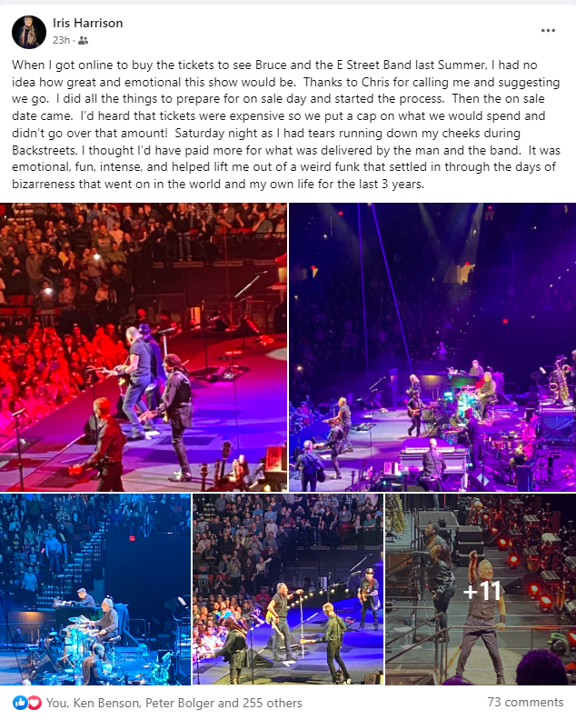
Money matters. But as a force, FOMO and gratifying ourselves after a difficult experience may be considerably more powerful.
For radio, it strongly suggests that if you’re going to be contesting, how can you come up with giveaways that tap into passion, emotions, and experiences – things that money can’t buy. That won’t stop the greed merchants from doing what they do best – getting the highest prices for goods and services we need to fuel our lives.
And at these prices, you’re hanging for the encore, right?
- Under The Influence(rs) - March 14, 2025
- Radio’s Dilemma: Trump Or Get Trumped - March 13, 2025
- What About Bob? - March 12, 2025




Experiencing live music is one of the most “connecting” or “connective” things we can do. We’re connecting with the music and lyrics, and we’re connecting with all the other fans. That feeling of connection to other humans as we’re all taking part in creating a unique moment in real time around the music we love is worth something to us… and maybe worth even more since we all crave it so deeply since COVID.
Matt, you’re right. And you can’t get it sitting in front of a monitor watching a favorite artist live stream a concert. Thanks for the reminder.
Awe and wonder seem to be lacking in our times. COVID showed that our lives can be lived in one room isolated and with a screen.
Concerts inspire awe and wonder so people can feel alive in a way few other modern experiences parallel.
Geoff, we could all use a little awe and wonder. Thanks for the comment.
In 2022, I traveled to see a show for the first time in my life….at 61 years old. And now I can’t stop. Last year’s Elton John farewell tour did the same thing to me – even though our tickets were dirt cheap by today’s standards, I would have paid much more for the experience I had. We had 4 pairs of concert tickets on the fridge in 2020 when everything shut down and we stared at them for a year before giving up on those shows for good. That said, there is a limit to what we’re willing to pay for concert tickets…..but it is a higher threshold than it was pre-pandemic.
Abby, I’m sure there are a lot of people nodding along to your comment. We all have those bands where this could be the last time. Thanks for the reminder that there’s a limit….sort of.
Last sentence -as it relates to all media. The one medium that ascribes to creating a product that taps into emotions, experiences and passion that money can’t buy — THE WINNER!! Radio used to do that, nothing has taken its place. Yet.
No, nothing has taken its place – YET. But radio would do itself a solid by getting back to its basics. Thanks, Dave.
Is this just a calculation of the dollar value of a unit of emotional desperation? Scarcity sells and supply chain issues have made that clear – whether its GM selling fewer vehicles but making more money, gas costing more than when oil prices were higher or Bruce getting four figures for his concert tickets.
I’ve said this before, but Bruce doesn’t need the money and a mad dash for tickets at a fixed price seems more democratic than thousand dollar tickets for those that can afford them. Either way, good seats to high dollar classic rock acts seem like great giveaway items that would matter to listeners.
After he sold his catalog for some $550 million, I’ve read this tour is for the E Street Band. In any case, I like your way of selling out these shows better.
I normally attend plays and some musical stage shows if the right titles are playing.I end up balancing the cost of a seat vs. where I would be sitting with the appropriate sight lines.
As I am retired,I have to watch my incidental spending.Live music concerts are out of my league,so those will be skipped.I guess the people buying these seats are using their credit cards to purchase them.Of course,doing that will put off the day you have to fully pay that bill off.
Or, as we seem to be doing collectively as a society and as our representatives do politically, let our children or grandchildren bear the burden (unless we simply default) in the future. In short, buy–and enjoy–now, let someone else worry about it later.
You’re not alone. Phil Rapino may claim that concerts are a bargain, but I’m sure millions of others would agree to disagree.
In defense of Live Nation’s Phil Rapino, who blames scalpers of doing “a great job hijacking the narrative” for the high ticket prices, you can see his point. After all, he’s doing all he can to control these skyrocketing costs, even scraping by himself on his estimated net worth of over a half-billion dollars. Bad scalpers!
And I’ll bet he gets pretty good seats to all the big shows!
I’ve always felt attending a live concert was psychologically a similar phenomenon to attending a large religious gathering: “communal shows with like-minded fans who share your taste” (or beliefs). But it never occurred to me that my family donates far more to our local church than we spend on concert tickets – and I’ve dropped 4 figures on concert tickets many times. No regrets with either expense. For many of us, music is religion.
And for many, their salvation. Thanks for the perspective, Jeff.